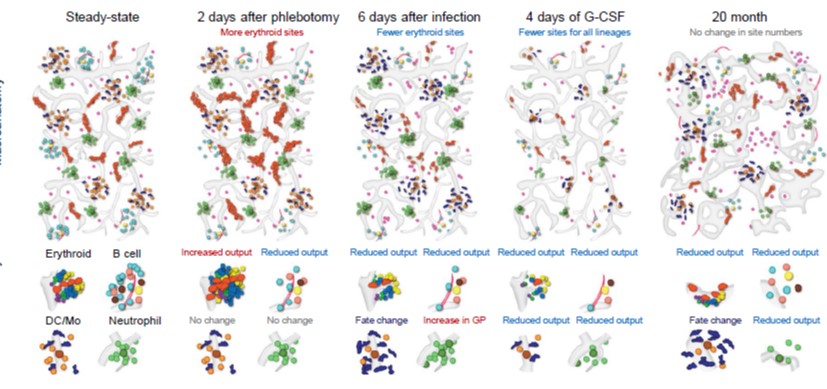Nasal Vaccine to Battle COVID-19 Begins Clinical Trial at Cincinnati Children’s
Post Date: September 10, 2021 | Publish Date:

The clinical trial of an intranasal spray designed to prevent COVID-19 is getting underway at Cincinnati Children’s, and principal investigator Paul Spearman, MD, says the new experimental vaccine has the potential to help curb the pandemic.
Spearman, director of the Division of Infectious Diseases, says Cincinnati Children’s is one of three sites that will enroll adult volunteers to help evaluate the safety and efficacy of Georgia-based CyanVac’s CVXGA1 vaccine.
Because no needle will be required to administer the spray, CVXGA1 might help overcome vaccine hesitancy among some people, Spearman says. Even more important, he adds, it has the potential to halt the virus at its point of entry and prevent further spread of the disease.
The Gamble Center for Vaccine Research at Cincinnati Children’s plans to begin enrolling participants in the clinical trial the week of Sept. 14. The 12-month clinical trial will require 10 visits to the Oak Building near the Avondale campus. Participants will be compensated $975 for their time.
Participants must not have been infected with COVID or have previously received a COVID vaccine, Spearman emphasizes. The first group of healthy adults enrolled will be ages 18 to 55 years old, and the second group will be 56 to 75. To enroll, click here.
https://redcap.link/COVID-19Vaccine
Each of the 15-20 local participants will get a single dose of the vaccine, administered via a squirt in each nostril.
Larger trials would have to be done before seeking FDA approval for adults, which might be mid-2022, Spearman says. A separate clinical trial involving children could begin about the same time.
The other two sites involved in the clinical trial are at Kentucky Pediatric/Adult Research in Bardstown and the University of Rochester Medical Center in New York. A fourth site might be added. A total of 80 people will be enrolled among the sites, and Spearman is the lead investigator nationwide.
CVXGA1 uses a live-vector virus, but it is not the COVID virus. It is impossible to catch COVID from the vaccine.
“This is a naturally-occurring canine respiratory virus that is not known to cause any harm in humans who have been exposed to it,” says Spearman, who notes that the vaccine also won’t have any effect on the family dog. “It is like the vaccine that dogs get, so we don’t recommend any isolation from dogs.”
More Information
Read details about the nasal vaccine study at ClinicalTrials.gov
Find more facts from Cincinnati Children’s about COVID-19 vaccines
Current Topics in COVID-19 Research Lecture Series
- Targeting the SARS-CoV-2 replicase for antivirals 1.13.2021
- COVID-19 vaccine development and implementation: the here and now 1.27.2021
- Understanding COVID-19 transmission: from households to populations 2.10.2021
- Pregnancy in the Time of COVID-19 3.10.2021
- COVID-19 and Equitable Diffusion of the Vaccines 4.14.2021
- Evaluating Vaccines for Emerging Infectious Diseases 5.12.2021
- COVID-19 Vaccines Revisited: Uptake Status and Remaining Questions 6.9.2021






